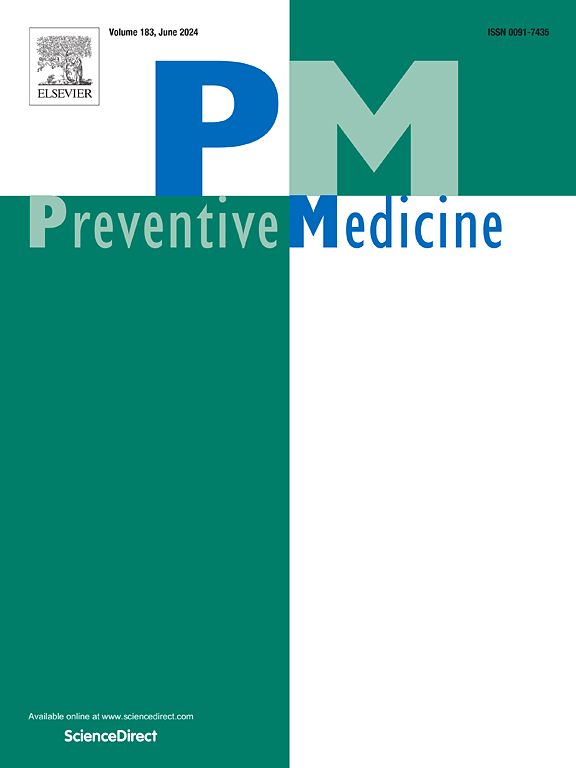Participation in community gathering places and loss of independence among older adults with and without mild disability in Habikino City, Japan: A four-year longitudinal study
IF 3.2
2区 医学
Q1 MEDICINE, GENERAL & INTERNAL
引用次数: 0
Abstract
Objective
Loss of independence (LOI) significantly affects quality of life and increases societal costs. Community gathering places supported by local governments aim to prevent LOI. However, evidence of their effectiveness among older adults with mild disability is limited. We investigated whether participation in community gathering places reduces the risk of LOI among older adults, including those with mild disability.
Methods
This retrospective cohort study used data from the Public Survey of Long-Term Care Prevention in Habikino City, Japan. The study was conducted from January 2020 to January 2024 and included 1961 adults aged ≥65 years without care needs. Participation in community gathering places was assessed at baseline, and LOI (new certification of need for long-term care, or death) was followed for four years. Cox proportional hazards models were used to estimate hazard ratios (HRs) and 95 % confidence intervals (CIs), with adjustment for demographics and health conditions. We also performed a subgroup analysis to assess the potential effect modification of mild disability (support levels 1–2 under Japan's Long-Term Care Insurance system).
Results
Participants in community gathering places had a significantly lower risk of LOI than non-participants (adjusted HR 0.57, 95 % CI 0.36 0.90). Subgroup analyses showed that older adults with mild disability benefited similarly, with no effect modification (P for interaction = 0.22).
Conclusions
Participation in community gathering places appeared to reduce the risk of LOI across different functional levels. These findings support initiatives to promote such environments and emphasize the role of social engagement in aging policies.
日本哈比比野市有和没有轻度残疾的老年人参加社区聚会场所和丧失独立性:一项为期四年的纵向研究。
目的:独立性丧失(LOI)显著影响生活质量并增加社会成本。地方政府支持的社区聚会场所旨在防止LOI。然而,它们在轻度残疾的老年人中有效的证据有限。我们调查了参与社区聚会场所是否会降低老年人(包括轻度残疾的老年人)患LOI的风险。方法:这项回顾性队列研究使用了日本哈比尼奥市长期护理预防公众调查的数据。该研究于2020年1月至2024年1月进行,包括1961名年龄≥65岁且无护理需求的成年人。基线时对社区聚会场所的参与情况进行了评估,并对LOI(长期护理需求或死亡的新证明)进行了四年的跟踪调查。Cox比例风险模型用于估计风险比(hr)和95%置信区间(ci),并对人口统计学和健康状况进行调整。我们还进行了亚组分析,以评估轻度残疾(日本长期护理保险制度下支持水平1-2级)的潜在影响。结果:社区聚会场所的参与者患LOI的风险明显低于非参与者(调整后HR 0.57, 95% CI 0.36 0.90)。亚组分析显示,轻度残疾的老年人获益相似,无效应改变(相互作用P = 0.22)。结论:参与社区聚会场所似乎可以降低不同功能水平的LOI风险。这些发现支持了促进这种环境的举措,并强调了社会参与在老龄化政策中的作用。
本文章由计算机程序翻译,如有差异,请以英文原文为准。
求助全文
约1分钟内获得全文
求助全文
来源期刊

Preventive medicine
医学-公共卫生、环境卫生与职业卫生
CiteScore
7.70
自引率
3.90%
发文量
0
审稿时长
42 days
期刊介绍:
Founded in 1972 by Ernst Wynder, Preventive Medicine is an international scholarly journal that provides prompt publication of original articles on the science and practice of disease prevention, health promotion, and public health policymaking. Preventive Medicine aims to reward innovation. It will favor insightful observational studies, thoughtful explorations of health data, unsuspected new angles for existing hypotheses, robust randomized controlled trials, and impartial systematic reviews. Preventive Medicine''s ultimate goal is to publish research that will have an impact on the work of practitioners of disease prevention and health promotion, as well as of related disciplines.
 求助内容:
求助内容: 应助结果提醒方式:
应助结果提醒方式:


